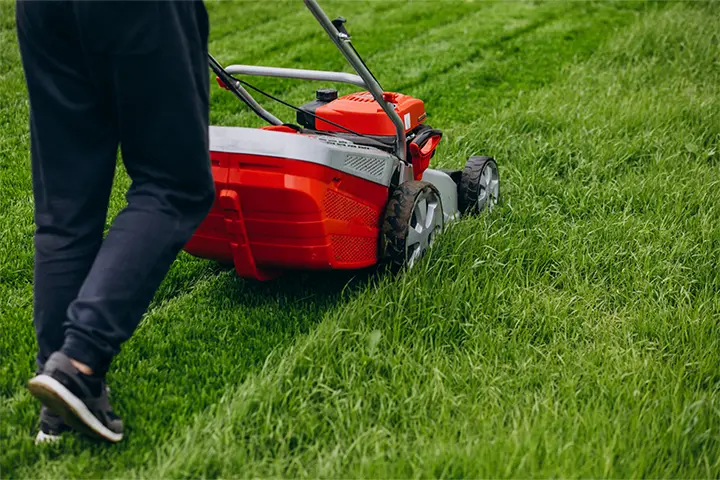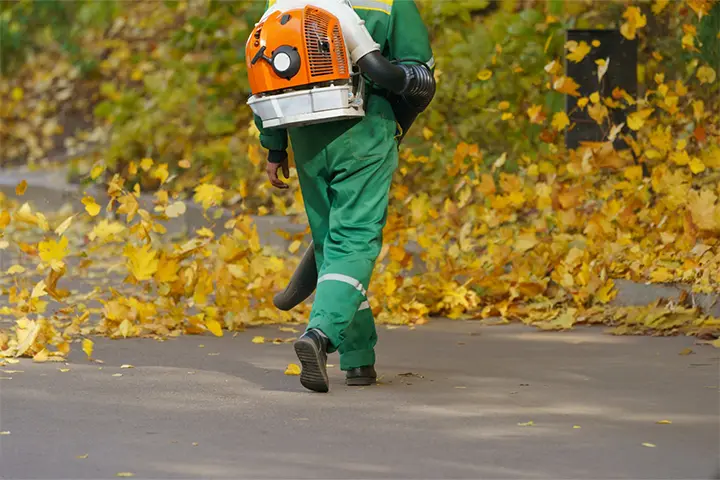Key Points
- A warm environment keeps the plants in good condition.
- Only water the plants if it is dry one inch deep.
- Control humidity in the house via water trays.
- Keep the plants near windows, so they can absorb some sunlight.
- Fertilizing the plants is not necessary because they grow very little during winter.
Introduction
Indoor environment can be the ideal environment for growing plants, but winter is a challenge. The low light, low humidity, and the dry heat that comes from radiators in our homes may harm your plants. Here we have compiled some simple tips for indoor plant care in winter to keep your plants beautiful and healthy. Let’s begin without any delay.
1. Keep Plants in a Warm Place
Plants love a warm environment. This is why you should have a warm place to keep them, even during the winter season. You must not place them near a door or window. Cold air can stress your plant. Place them near a radiator as long as it is not too close.
2. Water Your Plant Correctly
Plants need less water during the winter period. Frozen air makes the soil dry out slowly. Water the soil if it is dry. Put your finger in the soil. When the top inch feels dry, it’s time to water those plants. A common mistake is giving too much water. This causes rotting. This can stop the growth of plants.
3. Humidity
Flowers require water, no better than the person. Without being watered, they will die. It causes wilting of plants. They can die. As you must know, winter air is very dry. If you are using heaters in the house, the air can dry up even further.
It’s recommended to increase the moisture. Get a water-filled tray near your plants. The water will evaporate slowly into the plant. Use a natural humidifier to prevent excessive dryness.
4. Proper Light
Winter is also dark; thus, the plants do not receive much sunlight. The sunlight is also weak even in case the sun comes out. The plants should be placed close to a window where they will have direct sunlight.
Photosynthesis requires light, and it is important for plant development. Others use a grow light where they are unable to locate a good place to keep the plants.
5. Sunlight Must Reach Your Plants
Take everything out of the way, curtains and all, that stops the light coming through. A plant may become leggy and weak with too little light. Sunlight is required by plants to grow.
6. Avoid Fertilizing in Winter
In winter, plants grow more slowly. They don’t need as much food. You should not add fertilizers in the winter season. Stop fertilizing until spring arrives. If you are adding fertilizer in winter, it will only damage the plant roots. It puts stress on the plant.
7. Watch for Pests
In the winter, some bugs invade the home. As long as they are around, keep a watch over them, as your plants are at their mercy. Kill any pests you encounter. Use a cloth to wipe leaves. You can use an insecticidal soap.
8. Don’t Repot During Winter
Here is a rule: plants can be repotted in the spring season because they will grow easily at this time. You should not do this in the winter. In winter, plant growth is temporarily stopped. Transplanting to a different pot can be shocking and lead to their waning. Wait until it’s warmer.
9. Prune Your Plants
You can even prune your plants in the winter. Winter pruning can help clean up and is vital for the good health of plants. Pruning means pinching off any dead or yellow leaves. This means the plant looks pretty. Don’t do too much pruning because growth is slower in winter.
10. Check the Temperature
Indoor plants for the winter need an optimum temperature of 60°F-70°F. High temperatures can damage the plants. They can wilt. Don’t keep the plants near a heater. This can make a stressful environment for the plant.
11. Keep Plants Safe
Heaters can dry out the air. Second, it can be too hot for your plants. Do not put plants directly next to radiators or vents. The heat will dry out the ground. This creates stress. In this situation, get a humidity tray. This will moisten the air.
12. Use a Watering With a Narrow Spout
A narrow spout watering can will help you water your plants more consistently. People often spray water on the leaves rather than the roots, which is a big mistake. Wet leaves catch fungus or mold. Always water the base of the plant.
13. Provide MicroClimate for Your Plants
A microclimate is a tiny pocket with just the suitable conditions for your plants. You can make one by grouping a series of plants. When they’re up close, they even make their own humidity.
You can also protect plants from drafts. Drape them with a light cloth. Just be sure the cloth isn’t completely cutting off light.
14. Be Mindful of Plant Type
Plants have variable requirements. Some of them need more light. Some can grow with less light. Learn the needs of your plant. For instance, a cactus requires very little water. It is common knowledge that you can just look it up on the internet.
Check the requirements of every plant separately. Some have special requirements. Some can easily grow in the winter season.
15. Clean the Leaves
You might have dust that has settled on your plants’ leaves throughout the winter. This could also shade the sunlight and decrease photosynthesis. Use a cloth to clean the leaves and remove all the dust. The plants must get sunlight without any blockage.
16. Don’t Add Too Much Water
Pots for the plants should have holes in the bottom. They allow the water to drain out. It also stops the accumulation of water that may lead to root rot.
Wrap Up!
Keep in mind that your indoor plants for the winter demand extra care. The cold is a harsh season for them. However, this job is not hard. You can easily look after them with the above tips for gardening in winter. This way, your plants will look best.
If you want experienced help to maintain your garden looking great this winter, then TG’s Landscaping is here for you. We offer professional lawn care services. Contact us today.
Frequently Asked Questions
1. When should I water my houseplants?
Professionals suggest watering plants when the first inch of soil is dry. Remember that during wintertime, plants do not require a lot of water.
2. Can I fertilize in winter?
No. You should not fertilize the plants in winter due to their very slow growth.
3. What to use to raise humidity for my plants?
People often put a water tray near the plant. For better results, you can buy a humidifier. It will automatically add some moisture to the air.


